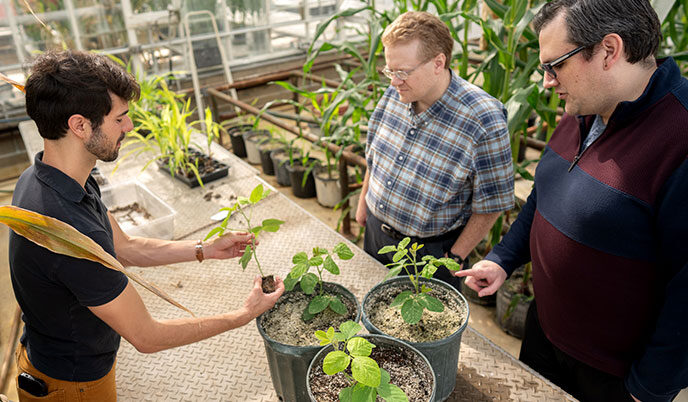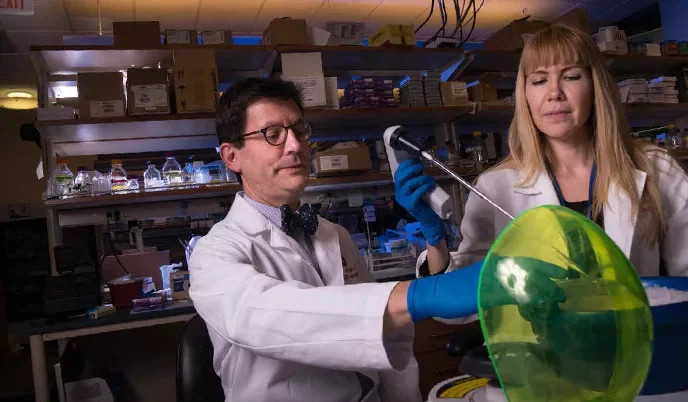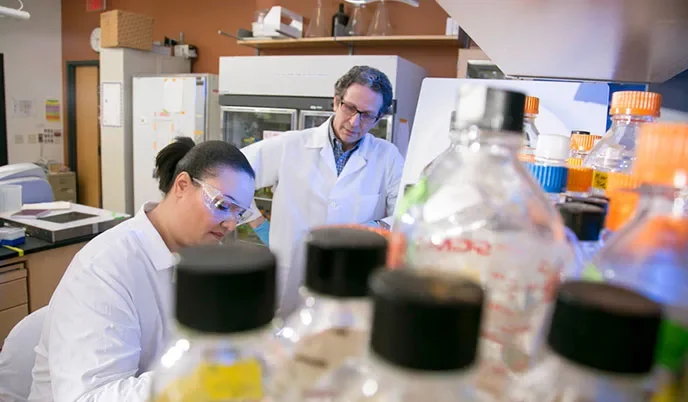
Engineering a Healthier Calorie
In a UW–Madison greenhouse, “Super Corn” and “Super Soy” plants reach to the sun, giving hope for a future when baked goods and corn chips may help fix our obesity and diabetes epidemics.

Preparing Future Public Health Leaders
The Population Health Service Fellowship Program is a cornerstone of the Partnership’s educational investments and continues to successfully achieve its goals of both public health workforce development and service contributions to rural and urban communities.

Reducing Health Disparities Across Wisconsin Health Systems
The Wisconsin Collaborative for Healthcare Quality's Health Disparities Report identifies where gaps in health outcomes and care exist in Wisconsin. The data was submitted to WCHQ by 25 health systems and medical clinics and it represents the most complete and recent (2018) data available for this work.

Exploring the Role of Gut Bacteria in Development of Alzheimer’s
Previous studies conducted at UW–Madison show that people with dementia due to Alzheimer’s disease have differences in their gut microbiome—the community of microbes, including bacteria, which reside in the gut — compared to people without dementia. A team of multidisciplinary researchers at UW is exploring the role of gut bacteria in the development and treatment of Alzheimer’s disease.

Increasing Vision Screening To Reduce Blindness
In an effort to mitigate vision loss among diabetic populations, Yao Liu, a recipient of a 2015 New Investigator Program award from the Wisconsin Partnership Program, has embarked on a research project aimed at increasing access to vision screening and improving eye screening rates in underserved, rural Wisconsin communities.

Exploring New Treatments for Breast Cancer
Metabolic Priming Triple-Negative Breast Cancer to Proapoptotic Therapy is exploring metabolic priming, a novel model for cancer therapy that uses dietary manipulations to make cancer cells more vulnerable to a targeted new drug that kills tumor cells, but not normal cells. The study is the first of its kind to use diet to prime triple-negative breast cancer cells to respond to a targeted cancer drug.

Caring for Wisconsin's Amish Infants
As a population, the Amish and Old Order Mennonite, collectively called Plain communities, have an increased frequency of inherited genetic diseases, many of which are screened for in newborns. But not all Plain newborns undergo screenings, so Christine Seroogy, MD, and her team of collaborators are using Wisconsin Partnership Program funding to improve access to approachable, culturally appropriate, high-quality affordable health care for all Wisconsin Plain community children.

Combating Infectious Disease
A project funded by the Wisconsin Partnership Program brought together campus basic scientists and clinical infectious disease and population health faculty to focus on translating new discoveries into clinical advances aimed at reducing the threat of infectious disease. The project created the Wisconsin Center for Infectious Disease (WisCID) to investigate microbiological areas of public health importance and translate the research findings into new treatments and preventive measures in response to the alarming rise of drug-resistant infections.

Advancing Burn Treatment
Twenty years ago, a Madison bus fire inspired Dr. Angela Gibson, then a UW Health burn nurse, to become a surgeon and scientist. Now she’s using a New Investigator Grant from the Wisconsin Partnership Program to improve the wound healing process for burn victims.

Enhancing Flu Detection
A multidisciplinary team of researchers led by Jonathan Temte, MD, PhD, professor of family medicine and community health at the UW School of Medicine and Public Health, aims to develop an innovative infection control approach for highly vulnerable populations living in long-term care facilities.